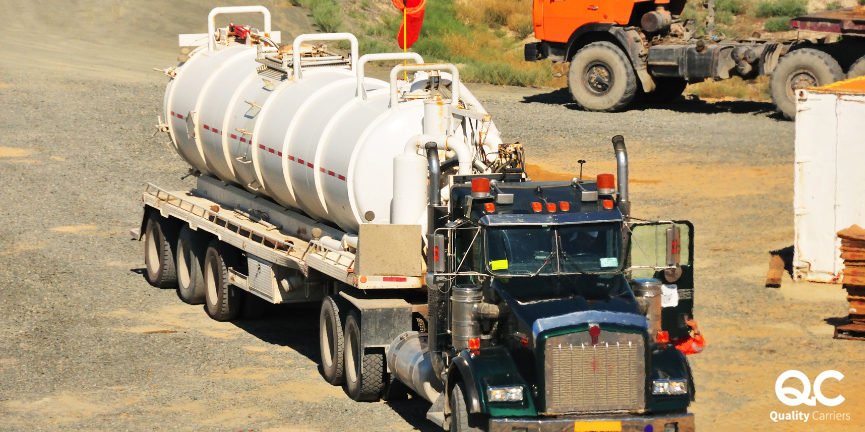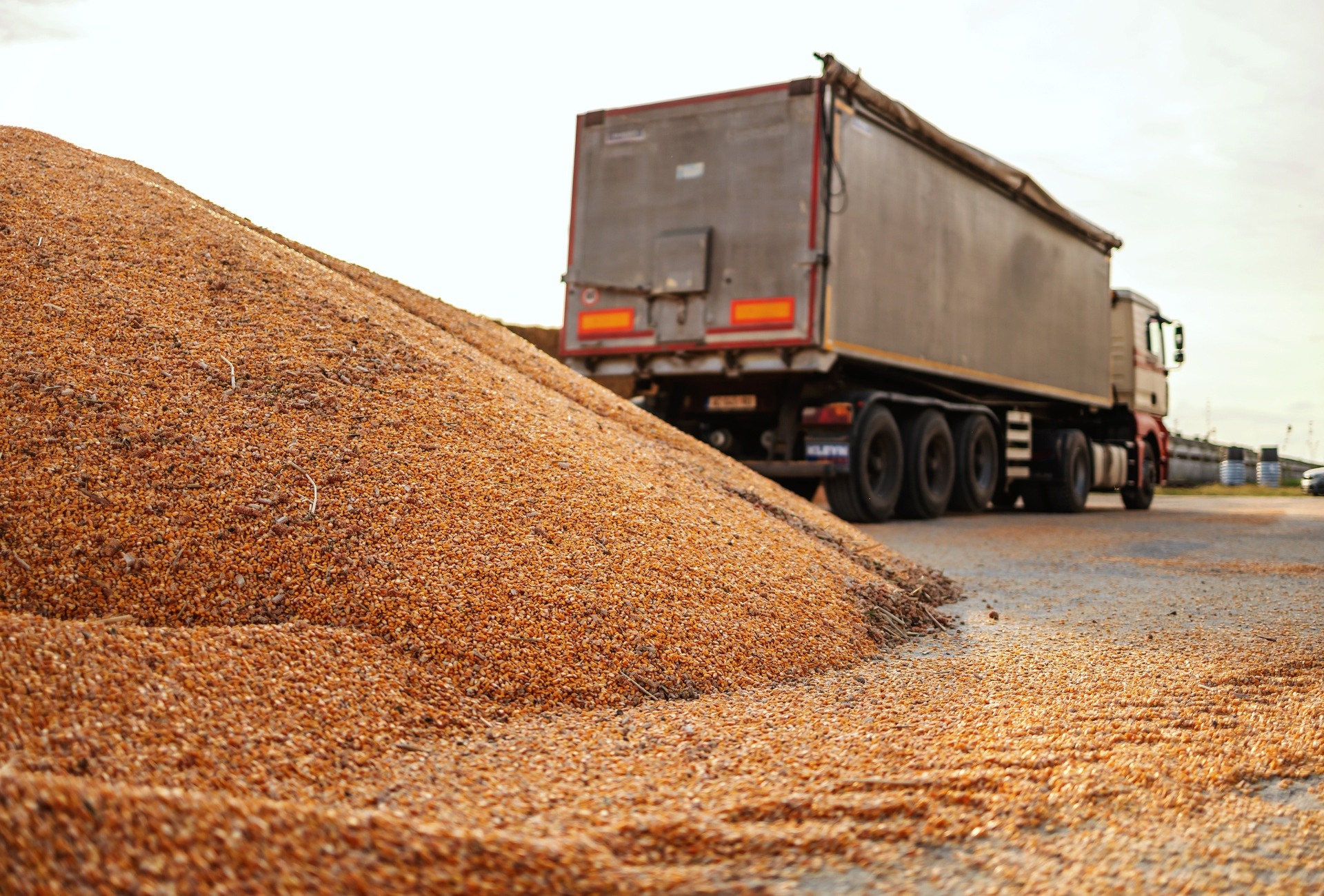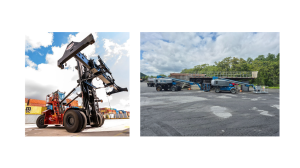Dry bulk drivers play a vital role in transportation as they specialize in moving granular or powdered materials. These skilled professionals operate specialized vehicles designed to safely and efficiently transport commodities such as grains, sand, fertilizers, cement, and more. Their work is crucial in supporting industries like agriculture, construction, and manufacturing, ensuring the timely and reliable delivery of essential materials.
Now, we will explore the definition of a dry bulk driver and highlight their importance within the transportation sector.
Responsibilities of a Dry Bulk Driver
The responsibilities of a dry bulk driver include the following:
- Transportation of granular or powdered materials, ensuring their safe and timely delivery.
- Ensuring safe and efficient loading and unloading processes to prevent damage or spills during transit.
- Compliance with transportation regulations and adherence to safety protocols to maintain a secure work environment.
- Regular maintenance and inspection of specialized equipment, such as dry bulk trailers and tanker trucks, to ensure their proper functioning and safety standards are met.
Types of Materials Transported by Dry Bulk Drivers
Dry bulk drivers transport a wide range of materials, including:
- Granular materials (e.g., grains, sand, fertilizers)
- Powdered materials (e.g., cement, flour, chemicals)
- Specific considerations for each type of material
Specialized Equipment Used by Dry Bulk Drivers
Dry bulk drivers utilize specialized equipment, including:
- Dry bulk trailers: These trailers are designed with compartments to transport granular or powdered materials safely.
- Tanker trucks: Dry bulk drivers may also operate tanker trucks, which are used for transporting liquids or gasses.
- Pneumatic trailers: Pneumatic trailers utilize compressed air to discharge materials during the loading and unloading.
- Vacuum trucks: Dry bulk drivers may use vacuum trucks, which employ suction to load and unload bulk cargo.

Qualifications and Skills of a Dry Bulk Driver
Qualifications and skills required for a dry bulk driver include:
- Valid commercial driver’s license (CDL) and endorsements
- Training and certifications
- Strong communication and problem-solving skills
- Ability to handle physically demanding work
Safety Considerations for Dry Bulk Drivers
Safety considerations for dry bulk drivers include:
Hazards: Be aware of material-specific dangers, including dust inhalation, combustible substances, corrosive materials, and the risk of shifting cargo.
Preventive measures: Follow proper loading and unloading procedures, secure cargo, maintain container seals, and use containment measures to prevent spills, contamination, and accidents.
Emergency response: Familiarize yourself with emergency protocols, contact authorities promptly, implement containment measures, and follow established procedures to ensure safety for yourself, the public, and the environment. Regular training and drills are essential for effective emergency response.
Challenges Faced by Dry Bulk Drivers
Dry bulk drivers face several challenges in their line of work, including:
Weather conditions and road restrictions: Navigating through adverse weather conditions and adhering to road restrictions can pose challenges during transportation.
Handling different types of materials: Managing materials with varying characteristics requires understanding their unique handling requirements.
Time management and delivery deadlines: Balancing delivery schedules, traffic conditions, and unforeseen delays is crucial for meeting delivery deadlines.

Career Opportunities and Growth for Dry Bulk Drivers
Career opportunities and growth in the transportation industry are promising for dry bulk drivers.
Here are some key aspects to consider:
Job prospects in the transportation industry: The demand for skilled dry bulk drivers offers promising job prospects in the transportation sector.
Advancement opportunities and potential career paths: Experienced drivers can advance to supervisory or management roles, oversee logistics operations, or manage fleets.
Training and development programs available: Transportation companies offer specialized training programs to enhance skills, improve safety knowledge, and provide opportunities for professional development. Engaging in these programs can boost career prospects.
Dry bulk drivers are essential for the transportation industry, ensuring the safe and efficient transport of granular or powdered materials. With their qualifications, specialized equipment, and adherence to safety protocols, they play a crucial role in maintaining the supply chain. Despite their challenges, dry bulk drivers have ample career opportunities and growth potential. Their contributions are invaluable to the smooth operation of the transportation sector and the economy as a whole.
FAQS
Dry bulk drivers may encounter health risks depending on the materials they transport. For example, exposure to certain chemicals or dust particles can pose respiratory or other health hazards. Drivers must use appropriate personal protective equipment and follow safety protocols to minimize potential health risks.
Dry bulk drivers ensure the quality and integrity of the materials they transport. This involves following proper loading and unloading procedures, maintaining the cleanliness of the equipment, and implementing measures to prevent contamination or spoilage of the cargo.
Yes, there are regulations and guidelines for dry bulk transportation to ensure safety and compliance. These regulations may include load-securing requirements, hazardous materials handling protocols, and environmental protection guidelines. Dry bulk drivers must know and adhere to these regulations during their operations.
Dry bulk shipping refers to transporting unpackaged and homogeneous cargo in large quantities, typically in the form of granular or powdered materials. These materials are loaded directly into the cargo holds of specialized dry bulk carriers, such as dry bulk trailers or tanker trucks.
A dry bulk carrier is a specialized vessel or vehicle transporting dry bulk cargo, and it has large load holds or compartments to accommodate the bulk materials being transported. Dry bulk carriers play a crucial role in the global shipping industry and are essential for transporting commodities like grains, ores, coal, cement, and other similar materials.




